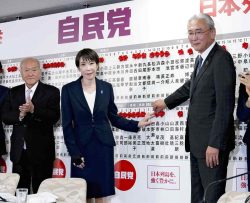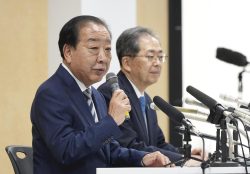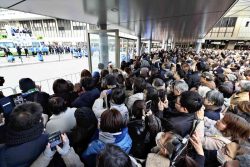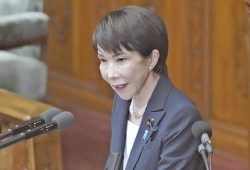2021 General Election Viewpoints / Economic stimulus measures, and how to pay for them, need careful study
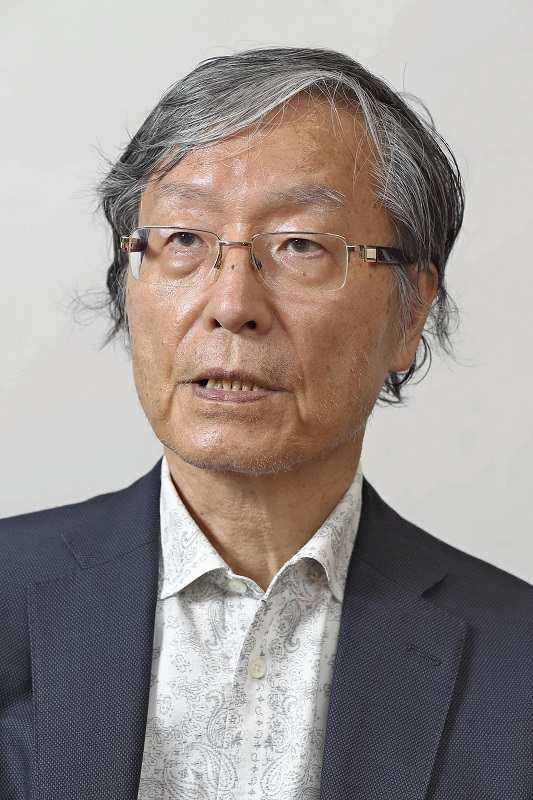
Takao Komine, professor at Taisho University
12:57 JST, October 14, 2021
In this second installment of a series on issues in the upcoming House of Representatives election, The Yomiuri Shimbun interviewed Takao Komine, a professor at Taisho University. The following is excerpted from the interview.
Both the ruling and opposition parties have stated that they will focus on [wealth] distribution policies. I hope specific measures will be thoroughly discussed in the upcoming House of Representatives election. There are two things that have to be kept in mind.
One of those issues is securing financial resources. Although there is a problem of inequality in Japan, it is not as extreme as in the United States. There is a limit to the method of increasing the tax burden on the wealthy and passing the increased funds on to the middle class. We need to expand the entire economic pie.
In this regard, Prime Minister Fumio Kishida’s call for a “virtuous cycle of growth and distribution” is still vague in its content. I would like him to clarify what he wants to change about the “Abenomics” economic stimulus strategy, and how he would do it.
The Constitutional Democratic Party of Japan and other parties are calling for a temporary reduction in the consumption tax rate, but they need to show under what circumstances they would raise it again and how they will make up for the decrease in revenue.
The other issue is how to implement the policy. It is inevitable that fiscal expenditures, including the provision of cash benefits to households in need, are prioritized amid the COVID-19 pandemic.
Meanwhile, medium- and long-term issues, such as the expansion of childcare support, must be backed by financial resources from the start. We need to consider these issues separately.
The government has made several major mistakes in its response to the pandemic. One example was the economic stimulus package announced in December last year with fiscal spending of ¥40 trillion. The amount was based on the fact that overall demand in the economy was lower than supply in the estimate of the supply-demand gap.
However, since the effects of the economic stimulus measures do not correspond to the supply-demand gap, the two should not be considered in connection. The same argument has been applied to the current economic measures, but it is important to carefully compile necessary measures rather than focusing on the amount of money.
A uniform ¥100,000 benefit to all residents also had only limited effects in boosting consumption as most of the funds ended up stored as savings. Such benefits should be provided only to those who are truly in need.
All of these measures are clearly wrong from the perspective of orthodox economics. To avoid repeating the same mistakes, the decision-making process needs to be reviewed.
Looking back at the Heisei era (1989-2019), the government was too slow in dealing with the bubble economy, and the delayed response resulted in deep wounds. The economy sometimes presents enormous challenges, but it takes a long time for society as a whole to recognize them. The current challenge is the huge budget deficit. There is a potential risk of it causing extreme disruption and burdening the people.
The only way to deal with such problems is either to raise taxes or squeeze spending. I hope that these issues will be squarely discussed in the election.
■ Takao Komine, professor at Taisho University
Born in 1947, Komine graduated from the Faculty of Economics, University of Tokyo. His specialty is the Japanese economy. He took up his current post in April 2017 after working at the Economic Planning Agency (now the Cabinet Office) and other organizations. His works include “Heisei no Keizai” (The economy of the Heisei era), which won the 2020 Yomiuri Yoshino Sakuzo Prize.
Top Articles in Politics
-

Japan PM Takaichi’s Cabinet Resigns en Masse
-

Sanae Takaichi Elected 105th Prime Minister of Japan; Keeps All Cabinet Appointees from Previous Term
-

Japan’s Govt to Submit Road Map for Growth Strategy in March, PM Takaichi to Announce in Upcoming Policy Speech
-

LDP Wins Historic Landslide Victory
-

LDP Wins Landslide Victory, Secures Single-party Majority; Ruling Coalition with JIP Poised to Secure Over 300 seats (UPDATE 1)
JN ACCESS RANKING
-

Japan PM Takaichi’s Cabinet Resigns en Masse
-

Japan Institute to Use Domestic Commercial Optical Lattice Clock to Set Japan Standard Time
-

Israeli Ambassador to Japan Speaks about Japan’s Role in the Reconstruction of Gaza
-

Man Infected with Measles Reportedly Dined at Restaurant in Tokyo Station
-

Man Infected with Measles May Have Come in Contact with Many People in Tokyo, Went to Store, Restaurant Around When Symptoms Emerged


